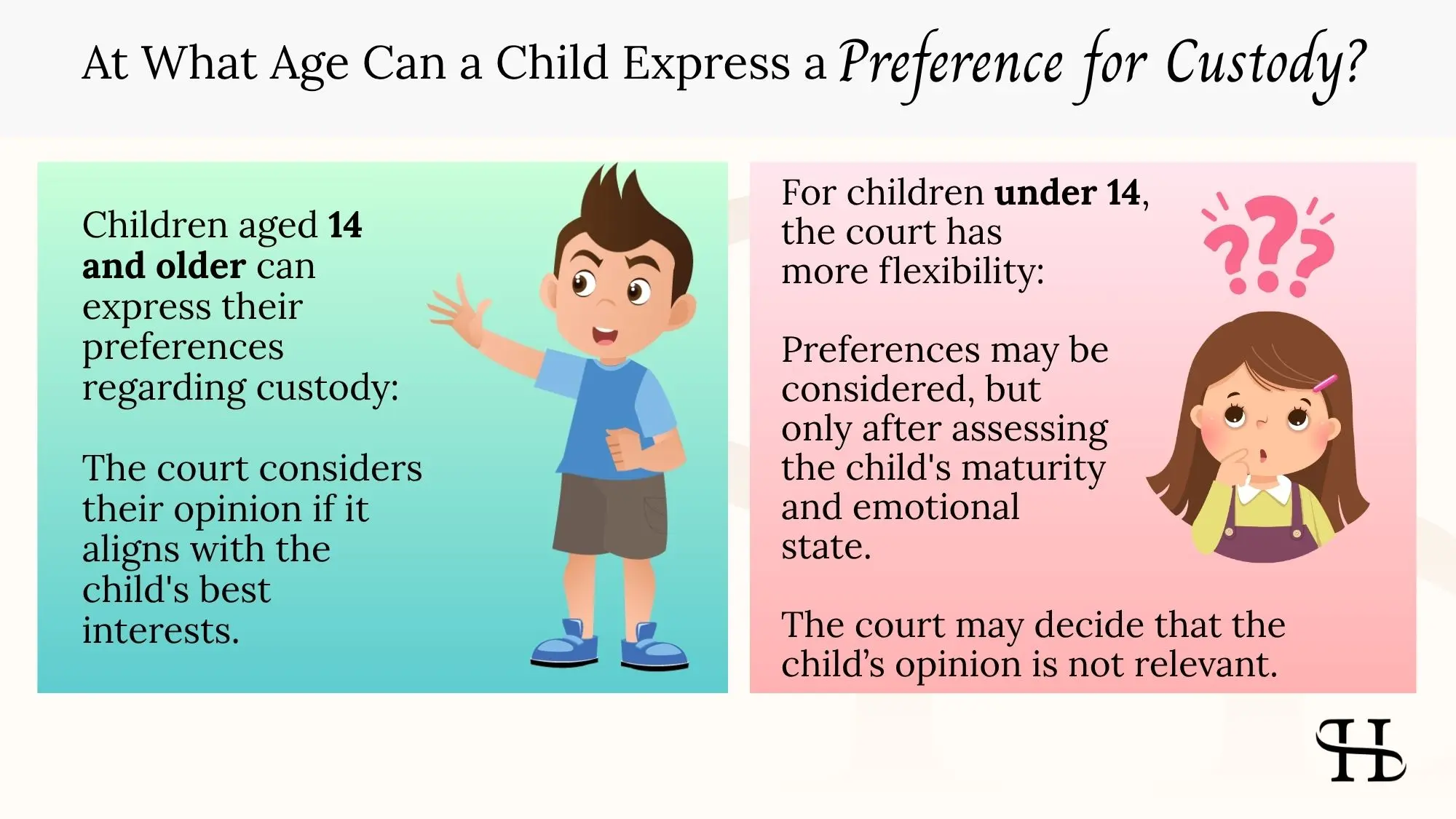Child custody laws can be difficult to understand, especially when it comes to a child’s role in the decision-making process. One common question in custody disputes is: at what age can a child choose which parent to live with? In California, while a child’s preference is taken into account, there are specific guidelines that determine how much weight it carries.
If you're dealing with a custody case, consulting a Sacramento child custody lawyer can help clarify your rights and your child's role. With our help, we can explain your options and protect your child from the experience of having to choose one loving parent over the other.
Understanding Child Custody in California
In California, child custody refers to a parent’s legal rights to make decisions for their child and where the child will live. There are two main types of custody: legal custody, which involves making decisions about your child’s upbringing (like education, healthcare, and religion), and physical custody, which determines where the child resides. These custody arrangements can either be shared or granted to one parent, depending on the court's view of what is best for the child.
When deciding custody, California courts take into account several factors, such as each parent’s ability to provide a stable home, the child’s relationship with each parent, and the child’s overall well-being. Being aware of these factors can help parents navigate custody disputes and work toward an arrangement that benefits everyone involved.
California Law on a Child’s Preference
Under California law, children don’t have the legal right to choose which parent they want to live with, but their wishes are considered if they are mature enough to express a reasonable preference. According to California Family Code Section 3042, the court must consider a child’s preference if the child is deemed capable of forming an intelligent opinion about custody or visitation.
In simpler terms, if a child is old enough to have a clear idea of where they want to live, their opinion will be taken seriously. However, this preference is not automatically decisive, and is just one factor among many that the court considers when determining what’s best for the child.
At What Age Can a Child Decide Who to Live With?

California law doesn’t allow children to independently choose which parent they want to live with until they turn 18. However, children aged 14 or older have the right to express their preference regarding custody. At this age, the court must take their wishes into account unless doing so would not be in the child’s best interests.
For children under 14, the court has more flexibility. While younger children can still share their preferences, the court must first assess whether it’s appropriate to consider the child’s opinion based on their age, emotional maturity, and the specifics of the case. In some situations, the judge might decide that hearing from the child is unnecessary or not in the child's best interest.
The Importance of a Child’s Preference
A child’s wishes are an important factor in custody decisions, but they are not the only consideration. Courts always prioritize the child’s best interests. This means that the judge will look at the child’s preferences alongside other factors such as:
- Age and maturity: The child’s emotional and intellectual capacity to make a sound judgment.
- Relationship with each parent: The closeness and quality of the relationship with each parent.
- Stability of the living environment: Whether each parent can provide a safe and stable home.
If a child expresses a preference to live with one parent, the judge will carefully weigh these factors, ensuring that the final decision is in the child’s best interest.
Alternatives for Younger Children
For children under 14, expressing a preference is not automatically allowed, but it may still be considered if the court determines it’s in the child’s best interest. This could happen when a child’s maturity allows them to explain their reasons for preferring one parent. For example, if a younger child has been living with one parent for an extended time and has developed a strong emotional bond, the court might find it appropriate to listen to their views.
To gather a younger child’s perspective, the court may involve a child custody evaluator, a child custody recommending counselor, or mediation, instead of directly questioning the child in court.

Challenges and Considerations
A child’s wishes can sometimes be influenced by external factors, such as emotional manipulation, parental alienation, or pressure from one parent. Parental alienation occurs when one parent tries to damage the relationship between the child and the other parent, which can lead the child to voice a distorted or false preference.
If the court believes such factors shape a child’s preference, it may not give it the same weight as it would otherwise. In these cases, the court will focus more on the evidence of the child’s emotional needs, the stability of the parents’ homes, and each parent’s ability to meet those needs.
What Happens If a Child’s Preference Is Contradicted?
Even if a child expresses a clear preference to live with one parent, the court may not necessarily honor that choice. The final decision is always based on what’s in the child’s best interest. For instance, if a teenager prefers to live with one parent to avoid discipline or for convenience, the court may still choose another arrangement if it believes that would provide a more stable and supportive environment.
In some cases, the court might order counseling or reunification programs to help repair relationships, especially if there is evidence of manipulation or communication breakdowns between the child and the other parent.

Tips for Parents in Custody Disputes
Parents should encourage their children to share their feelings in a custody case, but it’s important not to pressure them into making a choice. Instead, parents should focus on maintaining a stable and supportive relationship with their children, creating an environment of security and emotional care.
Parents should also consult with a skilled family law attorney to understand how the court will view their child’s preferences and how to present them effectively.
Secure Your Child’s Best Interests in Custody Decisions
California’s child custody laws allow children to have a voice, but their preferences are just one factor in determining custody. Children aged 14 and older can express their wishes, but the court will always prioritize what’s best for the child. If you’re navigating a custody case, a Sacramento child custody lawyer can help you understand your options and make sure your child’s voice is heard.





.avif)
.avif)



